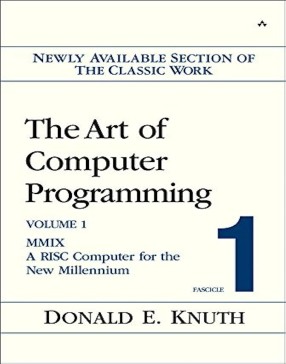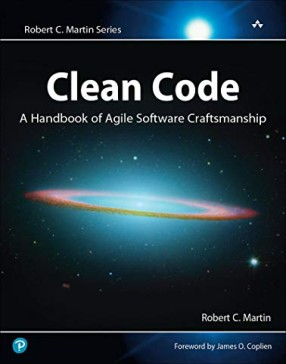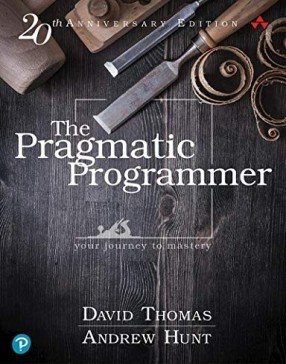The Top 5 Best Books on Software Engineering
Introduction
Books on software engineering have always been a great way to expand one’s knowledge of the field. There is always something new to learn in a great software engineering book, whether you are an aspiring, beginning, or experienced software engineer. There are a lot of software books that can help you learn new information and tricks you may not have heard of before. The book covers everything from design patterns and philosophies to clean code. Some could help you with getting ready for your difficult task interview!
We have picked a list of some of the 5 best software engineering books below. If you want fresh ideas and perspectives that could help your career, check out these books.
Best Books on Software Engineering to Read
Book 1: The Art of Computer Programming By Donald Knuth and Donald John Fuller

A. Overview of the book
Professor Donald Knuth, a well-known computer scientist, wrote this classic book. Many of the world’s best programmers have given this book high marks for its excellent mark and mathematical precision throughout the chapters. Knuth received the Turing Award in 1974 for his significant contributions to algorithm analysis through his well-known book series, “Art of Computer Programming.”
The book starts with fundamental programming ideas and procedures, investigates different programming calculations and portrays their examination productively, and afterwards centres especially around the portrayal of data inside a computer(information structure).
This series’s main objective is to introduce readers to a wide range of programming-related tools. However, it’s important to note that this series of books is a resource you can use whenever you want.
B. Skills you develop after reading this book
- How to manage the structural connections between data elements efficiently.
- How to effectively use the fundamental ideas of algorithms to solve problems.
- Combinatorial algorithms and semi-numerical algorithms.
- Least-Comparison Sorting or Ideal Arranging.
Book 2: Clean Code By Robert C. Martin

A. Overview of the book
This is one of the best classic books for beginners that will teach you how to write clean code using all the tricks and patterns. Each code which runs is certainly not a spotless code. The majority of novice programmers make this mistake because they just try to solve the problem and forget these things in order to write professional code that is clean and perfect. A clean code should be easy to read and well-organised so that it can be used again and debugged.
As a result, Clean Code aims to help software engineers and developers to improve their code and “clean” it up to minimise issues in the future. Clean Code is without a doubt in the running for the best computer programming book, particularly for those simply beginners in the field.
B. Skills you develop after reading this book
- How to name a variable appropriately?
- How to write code in a better method?
- How to structure your code in a better way?
- Why is a different strategy superior to this one?
Book 3: Code Complete: A Practical Handbook of Software Construction By Steve McConnell

A. Overview of the book
Read this book once if you want to be a great software engineer. This book has helped programmers write better software for more than a decade by providing the best practical programming guides. This book has an interesting mix of exemplary and completely refreshed with changed leading-edge coding ideas and models. With these appropriate ideas, you can simply figure out the study of programming development.
This book contains information from research, academia, and even everyday business practices. Because it aims to stimulate and inform your way of thinking, making it possible for you to improve the quality of your code, it is an excellent read for people of all experience levels.
Microsoft Press’ Code Complete contains a number of timeless methods that will assist you in designing your software with maximum creativity and minimal complexity.
B. Skills you develop after reading this book
- Software craftsmanship, including self-documentation and character, themes, and layout.
- Testing, integration, coding, and debugging for software development.
- Other significant software improvements perspectives like requirements and documentation.
- The methods for creating code of high quality, enhancements to code, and system considerations.
Book 4: The Mythical Man-month By Frederick Brooks

A. Overview of the book
This book is, in the words of software developers, the literal best book for software engineers. You will gain a strong understanding of software development, estimates, project management, and software development issues with the help of this book. “Brooks’ Law,” which states that “adding manpower to a late software project makes it later,” is the key theme of this book.
If you have ever worked on a software development project with a tight deadline, you may have heard the expression “Mythical Man Month.” A well-read team member will frequently use this expression when confronted with a business stakeholder who wants to throw more bodies at the project to make it move faster.
To start, reading the essay is helpful. Frederick P. Brooks warns us that months and man hours are not interchangeable in software. To make a project move along more quickly, you can’t add more men. This holds true in the majority of other production settings, such as manufacturing or farming, so CEOs and other businesspeople are liable to think.
B. Skills you develop after reading this book
The mythical man-month: It is a myth to measure useful work in man-months.
The fundamentals and mistakes of software engineering.
Keep in mind that you shouldn’t over-engineer a second system when working on a second system.
Any attempt to fix an error can lead to many numerous errors.
Book 5: The Pragmatic Programmer: Your Journey to Mastery By Andrew Hunt and David Thomas

A. Overview of the book
This book was written in 1999 by Dave Thomas and Andy Hunt to help their clients in developing better software and rediscover coding. A practical way of thinking has made many books, screencasts, and book recordings, as well as a huge number of vocations and examples of overcoming adversity, and these illustrations have assisted an age of developers with looking at the actual embodiment of programming improvement disregarding a specific language, system, or philosophy.
Presently, after twenty years, this new version reconsiders being a cutting-edge developer. Among the topics covered are personal responsibility, career advancement, and architectural strategies for keeping your code flexible and simple to adapt and reuse.
Instead of teaching us in a theoretical way, this book teaches us in a practical way with a collection of tips to improve the programming and development process. You will learn how to become a pragmatic programmer, an early adopter, a quick adapter, an inquisitive, a critical thinker, a realist, and a jack-of-all-trades with the help of this book. The Broken Windows Theory, the Story of the Stone Soup, and the Boiling Frog are just a few examples of the short stories and development methodologies that are discussed in this book.
B. Skills you develop after reading this book
Present improvement approaches and processes using numerous similarities and brief tales. e.g., the stone soup, or the tale of the bubbling frog.
Numerous ideas were named which get famous in this book, for example, code katas.
More use of techniques for making and protecting codes are highly flexible.
Valuable proposals for evaluations of time and cost.
Familiarise yourself with techniques for work that you may not as yet have thought of.
Are you getting ready for interviews in software engineering?
After going through each of these books, you will almost be in a good position. However, the subject matter of software engineering interview questions can be just as difficult. Therefore, it is highly recommended that you make the most of the other resources available to you for interview preparation.
Conclusion
Your reading list should ideally include some of the above-mentioned software engineering textbooks, whether you are an aspiring, beginning, or experienced software engineer. However, it is necessary to keep up with the most recent and significant changes to the field by joining forums, following some authorities and blogs, and so on.
So these are a couple of books that you should read once in your life to acquire information about improving as a developer. These books will help you become a better programmer by making use of your unique mind and increasing your intelligence. Stay Tuned for more real stuff!!
Also Read
Edge Computing: Empowering Real-Time Data Processing
5G Technology: Revolutionising Connectivity and Communication
